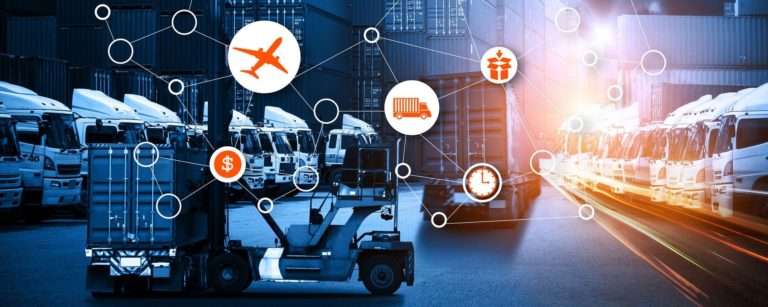
Technology’s Transformative Influence on Logistics
In the dynamic world of logistics, technology has emerged as a formidable force, significantly altering the way goods are transported, tracked, and managed. Let’s understand how innovations such as GPS tracking, Internet of Things (IoT) sensors, and advanced data analytics have revolutionized modern logistics, enhancing efficiency and accuracy.
GPS Tracking for Real-Time Precision
GPS tracking technology has become ubiquitous in logistics operations. It enables real-time monitoring and tracking of shipments, vehicles, and assets. Here are some key benefits:
1: Route Optimization: With GPS data, logistics professionals can identify the most efficient routes, reducing fuel consumption and delivery times.
2: Enhanced Security: Real-time tracking deters theft and provides immediate alerts in case of unauthorized access to cargo.
3: Customer Transparency: Customers can track their shipments, enhancing their overall experience and trust in the logistics process.
IoT Sensors: Ensuring Cargo Quality and Security
The Internet of Things (IoT) has introduced a new level of sophistication in logistics. IoT sensors placed on cargo offer invaluable insights into environmental conditions and security. Consider these advantages:
1: Temperature and Humidity Monitoring: IoT sensors can alert logistics providers if cargo conditions deviate from specified ranges, preserving the quality of perishable goods.
2: Security Alerts: Intrusion detection sensors can trigger alarms if there is any unauthorized access to cargo containers or vehicles.
3: Data-Driven Decision-Making: The data collected from IoT sensors can inform logistics professionals about potential issues, allowing for proactive interventions.
Data Analytics: Unleashing the Power of Data
One of the most transformative aspects of technology in logistics is data analytics. Advanced algorithms and data processing tools are used for various purposes, including:
1: Demand Forecasting: Predictive analytics help logistics companies anticipate fluctuations in demand, optimizing inventory management.
2: Route Planning and Traffic Prediction: Real-time data analysis aids in choosing the best routes, avoiding traffic congestion, and reducing delivery times.
3: Cost Optimization: Through data-driven insights, logistics providers can identify cost-saving opportunities across their operations.
Conclusion:
In conclusion, technology has evolved into the driving force behind the logistics industry’s continuous improvement. GPS tracking, IoT sensors, and data analytics have not only enhanced efficiency but also elevated the level of transparency and security in logistics operations. Staying updated with the latest technological advancements is crucial for logistics companies aiming to remain competitive in an ever-changing landscape.
With these advancements, logistics is poised for further transformation in the years to come. Embracing technology and integrating it strategically into logistics operations will be the key to success in this dynamic industry


